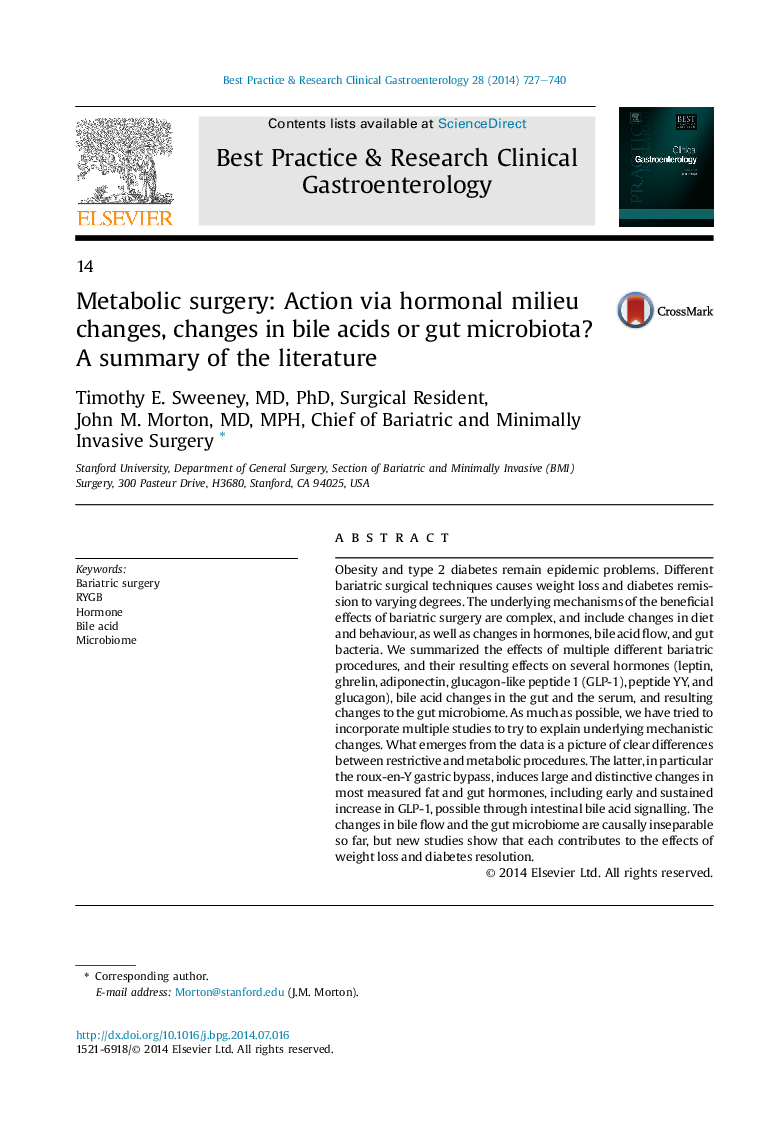| Article ID | Journal | Published Year | Pages | File Type |
|---|---|---|---|---|
| 3254027 | Best Practice & Research Clinical Gastroenterology | 2014 | 14 Pages |
Obesity and type 2 diabetes remain epidemic problems. Different bariatric surgical techniques causes weight loss and diabetes remission to varying degrees. The underlying mechanisms of the beneficial effects of bariatric surgery are complex, and include changes in diet and behaviour, as well as changes in hormones, bile acid flow, and gut bacteria. We summarized the effects of multiple different bariatric procedures, and their resulting effects on several hormones (leptin, ghrelin, adiponectin, glucagon-like peptide 1 (GLP-1), peptide YY, and glucagon), bile acid changes in the gut and the serum, and resulting changes to the gut microbiome. As much as possible, we have tried to incorporate multiple studies to try to explain underlying mechanistic changes. What emerges from the data is a picture of clear differences between restrictive and metabolic procedures. The latter, in particular the roux-en-Y gastric bypass, induces large and distinctive changes in most measured fat and gut hormones, including early and sustained increase in GLP-1, possible through intestinal bile acid signalling. The changes in bile flow and the gut microbiome are causally inseparable so far, but new studies show that each contributes to the effects of weight loss and diabetes resolution.
